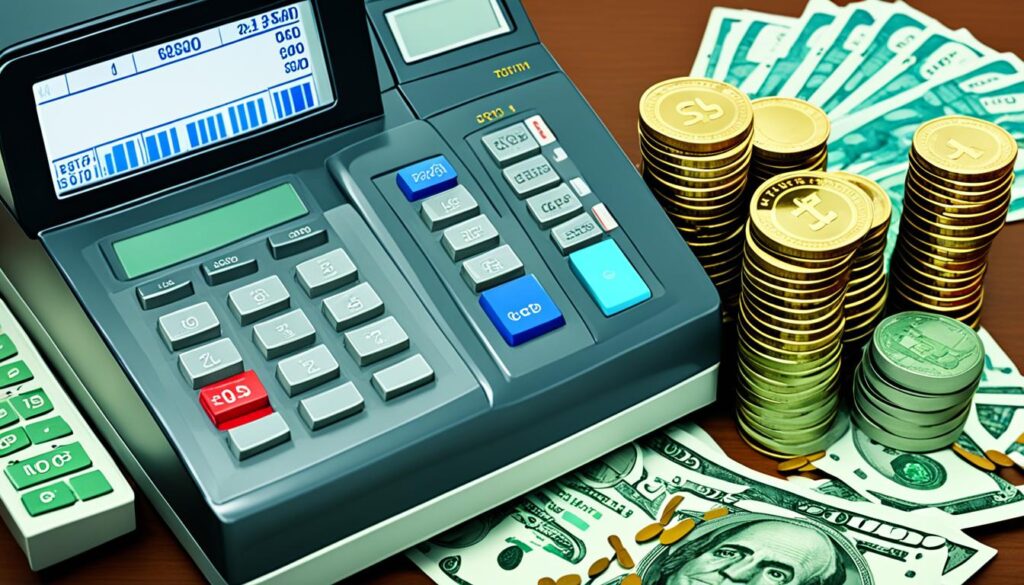If you’re considering selling your distribution business, it’s important to understand the value of your company and the factors that impact its worth. The two main methods used to value a distribution business are the multiple of seller’s discretionary earnings (SDE) and the multiple of earnings before interest, taxes, depreciation, and amortization (EBITDA). Industry multiples are then applied to determine the final business value. It’s essential to avoid valuing your company based on a percentage or multiple of revenue, as this method is inaccurate. Other factors that impact a distribution company’s value include vendor and customer relationships, and the presence of value-added services. Understanding the valuation process and the factors that impact your business’s worth will help you set realistic expectations and negotiate the best deal when selling your distribution company.
Determining Business Value: Multiple of SDE vs. Multiple of EBITDA
The first step in valuing your distribution business is determining whether to use the multiple of seller’s discretionary earnings (SDE) or the multiple of earnings before interest, taxes, depreciation, and amortization (EBITDA) method. SDE is typically used for businesses with less than $15 million in revenue and involves adding back certain expenses tied to the current owner. EBITDA, on the other hand, is used for larger businesses and assumes that the buyer won’t be the owner-operator. Once the appropriate earnings stream is determined, industry multiples are applied to arrive at the final business value. Understanding these valuation methods and selecting the right one for your distribution company is crucial in accurately pricing your business for sale.
Factors Impacting a Distribution Company’s Value
While earnings are the primary driver of a distribution company’s value, there are other factors that can impact its worth. Having strong vendor relationships can set your business apart and increase its value, as it demonstrates the ability to remain competitive in a saturated industry. Similarly, the quality of customer relationships, including customer churn rate and contracts, can significantly influence a distribution company’s value. Offering value-added services, such as product kitting or order fulfillment, can also boost the attractiveness and revenue potential of your distribution business. Understanding these additional value drivers will help you position your company for maximum value when selling.
Buyers for Your Distribution Business
Distribution businesses can attract different types of buyers, including individual buyers, strategic buyers, and financial buyers. Individual buyers are often looking to acquire a business through the SBA’s loan program and may have experience in high-level management positions. They are typically excited about buying a distribution business, but may have less access to capital and be less flexible in the negotiation process. Strategic buyers, on the other hand, are businesses within or related to your industry, and acquiring your distribution company can bring synergies and added value to their operations. Strategic buyers may be willing to pay a premium for your business but could also present potential issues, such as employee layoffs or confidentiality breaches. Financial buyers, such as private equity groups, can be great options for selling your distribution business, as they bring capital and expertise in acquiring and growing companies. Assessing the different types of buyers and their potential benefits and drawbacks will help you find the right fit for your distribution company.
Steps to Successfully Sell Your Distribution Business
Selling a distribution business involves several essential steps. The first step is to determine the value of your business by obtaining a Broker’s Opinion of Value from a licensed merger and acquisition broker. It’s crucial to increase your business’s value by focusing on metrics such as customer growth, legal history, and established supplier relationships. Building a business plan, ensuring a strong management team, and improving cash flow and operations can also contribute to increased value. Once your business is ready for sale, hiring a merger and acquisition broker is highly recommended. A broker can help qualify buyers, manage the entire selling process, and ensure a smooth transition of ownership. Negotiating the terms of the deal, closing the sale, and finalizing the transaction will complete the process of successfully selling your distribution business.
Conclusion
Selling a distribution business can be a complex process, but with the right knowledge and support, you can navigate it successfully. Understanding how to value your business, the factors that impact its worth, and the types of buyers available is crucial in setting realistic expectations and negotiating the best deal. Taking steps to increase the value of your business and hiring a qualified business broker will help you maximize the selling price and ensure a smooth transaction. By following these guidelines and working with experienced professionals, you can successfully sell your distribution business and move on to the next chapter of your entrepreneurial journey.
Key Takeaways:
- Selling a distribution business involves valuing the company using methods such as multiple of seller’s discretionary earnings (SDE) or multiple of earnings before interest, taxes, depreciation, and amortization (EBITDA).
- Factors impacting a distribution company’s value include vendor relationships, customer relationships, and value-added services.
- Distribution businesses can attract individual buyers, strategic buyers, and financial buyers, each with their own pros and cons.
- Steps to successfully sell a distribution business include determining its value, increasing its worth through various strategies, and hiring a qualified business broker.
- By following these steps and working with professionals, you can successfully sell your distribution business.
Determining Business Value: Multiple of SDE vs. Multiple of EBITDA
When it comes to valuing your distribution business, there are two main methods to consider: the multiple of seller’s discretionary earnings (SDE) and the multiple of earnings before interest, taxes, depreciation, and amortization (EBITDA). Understanding and selecting the right valuation method is crucial in accurately pricing your business for sale.
“Determining the value of your distribution business is a critical step in the selling process. By utilizing the appropriate valuation method, you can ensure that your business is priced competitively in the market.”
The first method, seller’s discretionary earnings (SDE) valuation, is typically used for businesses with less than $15 million in revenue. SDE takes into account the earnings generated by the business and adds back certain expenses tied to the current owner. This method provides a more comprehensive picture of the business’s financial performance and potential profitability under new ownership.
On the other hand, earnings before interest, taxes, depreciation, and amortization (EBITDA) valuation is commonly used for larger distribution businesses. EBITDA assumes that the buyer will not be the owner-operator and therefore excludes the expenses directly tied to the current owner. By focusing solely on the business’s earnings potential, EBITDA valuation provides a clearer representation of its financial health.
Once the appropriate earnings stream is determined, industry multiples are applied to calculate the final business value. These industry-specific multiples consider factors such as market conditions, growth prospects, and risk profiles. The table below provides an overview of the key differences between SDE valuation and EBITDA valuation.
| Valuation Method | Applicable for Businesses… | Strengths | Considerations |
|---|---|---|---|
| Seller’s Discretionary Earnings (SDE) | Less than $15 million in revenue |
|
|
| Earnings Before Interest, Taxes, Depreciation, and Amortization (EBITDA) | Larger businesses |
|
|
Understanding these valuation methods and their suitability for your distribution company is essential in accurately pricing and positioning your business for sale. By seeking professional assistance and evaluating your business’s financials with these methods, you can ensure that your distribution business receives an accurate and competitive valuation.
Factors Impacting a Distribution Company’s Value
When it comes to valuing a distribution company, earnings play a significant role. However, there are other factors that can impact the overall worth of the business. These factors include:
- Strong Vendor Relationships: Building robust and mutually beneficial vendor relationships can set your distribution company apart from competitors. Such relationships demonstrate your ability to stay competitive in a saturated industry, which can greatly increase the value of your business.
- Quality Customer Relationships: The quality of your customer relationships is another crucial factor to consider. Factors such as customer churn rate and contractual agreements can significantly influence the value of your distribution company. Maintaining long-term customer relationships and a favorable customer retention rate will showcase the stability and potential revenue of your business.
- Value-Added Services: Offering value-added services can enhance the attractiveness of your distribution business. These services may include product kitting, order fulfillment, or additional specialized services that differentiate your company from others in the market. Providing such services can increase the revenue potential of your business and contribute to its overall value.
By understanding and leveraging these additional value drivers, you can position your distribution company for maximum value when it comes time to sell.
Having a strong vendor network can set your distribution company apart and increase its value.
Buyers for Your Distribution Business
Distribution businesses attract various types of buyers, each with unique characteristics and advantages. Understanding the different buyer profiles will help you determine the right fit for selling your distribution company.
Individual Buyers
Individual buyers are often interested in acquiring a distribution business through the Small Business Administration’s (SBA) loan program. They may have significant experience in high-level management positions and possess the necessary skills to lead a company.
While individual buyers are typically enthusiastic about purchasing a distribution business, they may face limitations in terms of capital access. This constraint might impact their flexibility during the negotiation process.
Strategic Buyers
Strategic buyers are businesses either within your industry or closely related to it. Acquiring your distribution company can bring synergies and additional value to their existing operations.
Strategic buyers might be willing to pay a premium for your business due to the strategic advantages they can gain. However, integrating your company into their operations may require certain adjustments, such as employee layoffs or potential confidentiality breaches.
Financial Buyers
Financial buyers, such as private equity groups, can be excellent options for selling your distribution business. They bring significant capital and expertise in acquiring and growing companies across various industries.
Selling to financial buyers can offer stability and potential growth opportunities for your distribution business. Their focus on maximizing returns may result in operational improvements and increased market presence.
Understanding the pros and cons of each type of buyer will help you assess who may be the best fit for your distribution company. Consider their financial capabilities, industry connections, and long-term goals to ensure a successful sale.
| Type of Buyer | Characteristics | Advantages | Considerations |
|---|---|---|---|
| Individual Buyers | Experienced in high-level management positions | Enthusiasm for distribution business | Capital limitations; potential negotiation inflexibility |
| Strategic Buyers | Industry-related businesses | Synergies and added value potential | Employee layoffs; confidentiality concerns |
| Financial Buyers | Private equity groups | Capital and expertise in acquiring and growing companies | Potential operational improvements; increased market presence |
Steps to Successfully Sell Your Distribution Business
Selling a distribution business involves several essential steps. Follow these guidelines to increase the value of your business and ensure a smooth and successful sale.
- Determine the value of your business: Obtain a Broker’s Opinion of Value from a licensed merger and acquisition broker to accurately assess the worth of your distribution business.
- Increase business value: Focus on metrics such as customer growth, legal history, and established supplier relationships to enhance the value of your distribution business.
- Build a solid business plan: Develop a comprehensive business plan that showcases the potential and profitability of your distribution company.
- Ensure a strong management team: Showcase a competent and experienced management team, highlighting their qualifications, skills, and contributions to the business.
- Improve cash flow and operations: Streamline your distribution operations, optimize cash flow, and minimize inefficiencies to increase the overall value of your business.
- Hire a merger and acquisition broker: Engage the expertise of a qualified business broker who specializes in the sale of distribution companies. They can help identify and qualify potential buyers, manage the entire selling process, and ensure a smooth transition of ownership.
- Negotiate the terms of the deal: Work with your broker to negotiate favorable terms, including the purchase price, payment structure, and any contingencies or warranties.
- Close the sale and finalize the transaction: Once all parties agree on the terms, complete the necessary documentation, handle the transfer of assets, and ensure a seamless closing process.
By following these steps and working with experienced professionals, you can successfully sell your distribution business and maximize its value.
Conclusion
Selling a distribution business can be a complex process, but with the right knowledge and support, you can navigate it successfully. By understanding how to value your business and identifying the factors that impact its worth, you can set realistic expectations and negotiate the best deal. Additionally, taking strategic steps to increase the value of your business and enlisting the expertise of a qualified business broker will maximize your selling price and ensure a smooth transaction.
When selling your distribution company, it’s important to consider the different types of buyers available. Individual buyers, strategic buyers, and financial buyers each bring unique advantages and considerations to the table. Assessing these options and finding the right fit for your business will help you achieve a successful sale.
Remember, working with experienced professionals throughout the process is key. By following these guidelines and collaborating with a skilled team, you can successfully sell your distribution business and embark on the next chapter of your entrepreneurial journey.








